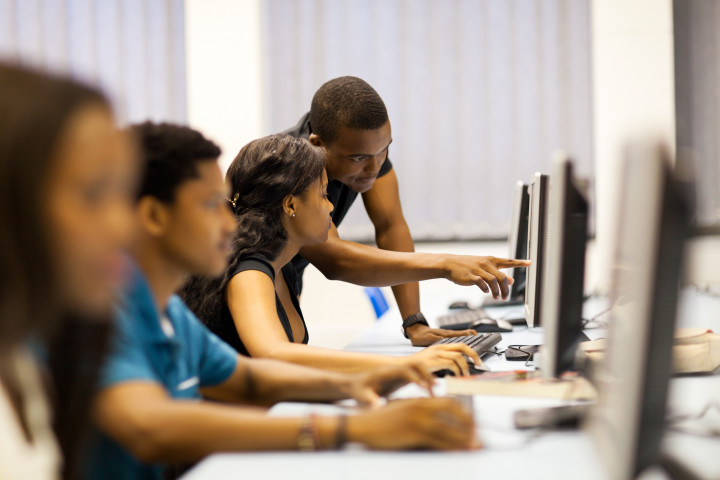CS Faculty Participate in Workshop Geared Toward Engaging BIPOC Undergrads in Research
From detecting internet censorship as it occurs to exploring how artificial intelligence is improving smartphone cameras, undergraduates who are typically underrepresented in computing will explore these topics and more this weekend at the University of Maryland.
“Exploration Trail: Research at Bitcamp”—a three-day workshop aimed specifically toward Black, Indigenous, People of Color (BIPOC)—brings together about 50 students from across the U.S. who will engage in meaningful computing research with UMD faculty and students.
The event, from April 9–11, is being held entirely online due to the ongoing COVID-19 pandemic. It is being presented by the Department of Computer Science and the Iribe Initiative for Inclusion and Diversity in Computing, with additional support from Google’s exploreCSR initiative.
The workshop will run in tandem with Bitcamp, a 36-hour hackathon—held virtually this year—that was initially conceived by UMD students in 2013.
Computer science faculty are participating in the workshop, offering their expertise and knowledge in a team-based setting that offers a positive intellectual, social and emotional environment for participants.
Assistant Professors Dave Levin and Leilani Battle are leading the bootcamp portion of the event on April 9. It will consist of a series of presentations, discussions and Q&A sessions—all with the goal of providing students with as much information as possible about the research experience.
Battle says a key part of broadening participation in computer science is exposure to research.
“Students need more opportunities to learn what research is all about, and not just hearing about it but actually doing it,” she says. “Through Bitcamp, BIPOC students can get a crash course in computer science research in an exciting, hands-on way.”
In addition to assisting with the opening day bootcamp, Levin is also running a session titled “Detecting Internet Censorship,” where students will analyze very large open-source datasets from tools that monitor the occurrence of network censorship. They’ll then determine where around the world network censorship is occurring, what content is censored, and when. The goal is to have a mechanism to detect new censorship events as they happen.
Other faculty presenting at the research workshop are:
• Jordan Boyd-Graber, an associate professor of computer science, will lead a project called “Build a Question-Answering System.”
• Amanda Lazar, an affiliate faculty member, is leading a project, “User-Centered Design of Technology for People with Dementia,” that looks to develop creative ways that technology can be used by people suffering from dementia.
• Nirupam Roy, an assistant professor of computer science, is in charge of two projects, “Energy-Aware Sensing and Learning for the Battery-Free Future” and “Localizing Drones Through Learning the Interaction of Sound with Microstructures.”
• Matthias Zwicker, a professor of computer science and interim chair of the department, will lead a project called “How AI is Making Your Smartphone a Better Camera.”
In addition to their tenure or tenure track appointments in computer science, Battle, Boyd-Graber, Levin, Roy and Zwicker all have appointments in the University of Maryland Institute for Advanced Computer Studies (UMIACS).
For more information about the research workshop, including how to sign up, go here.
—Story by Melissa Brachfeld
The Department welcomes comments, suggestions and corrections. Send email to editor [-at-] cs [dot] umd [dot] edu.
